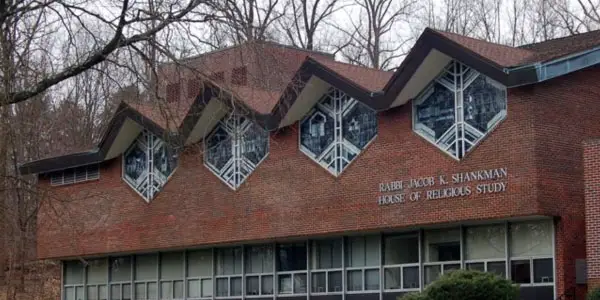New Jewish school offers affordable alternative to rising tuition costs

A solution to the growing problem of educational affordability in Westchester is on the horizon.
The Westchester Torah Academy, a modern Orthodox Yeshiva day school, is opening in September in New Rochelle. For many families, it”™s about time. Many Jewish parents and grandparents have been suffering from the increasing cost burden of tuition for a Jewish day school.
The Orthodox Union (OU), a Jewish religious and service-based organization headquartered in New York City, released a report toward the end of 2011 titled “Summit on the Affordability of Jewish Education.” According to OU, the problem is the average cost of Jewish day school tuition for grades K-12 is $15,000 per year, and in the New York metro area, that number can exceed $20,000.
Compare that to the average Catholic school that charges $3,673 in yearly tuition for a primary school student, according to the National Catholic Educational Association. The OU report acknowledged the problem of affordability and shared action steps, such as engaging Jewish federations, foundations and philanthropists and reaching out to synagogues for support.
That”™s exactly what the founders of Westchester Torah Academy (WTA) did. They approached the Temple Israel in New Rochelle and found a cost-effective home for the school, which helps them be able to offer tuition at $10,000 per student.
Kevin Shacknofsky, WTA president, said the high cost of tuition has been a problem for families for nearly a decade. “The average Orthodox family has three to four kids, so you”™re paying sometimes $23,000 for three to four kids. It”™s not affordable unless you”™re a wealthy person. So we thought there was a need to create a school that the average family could afford.” Shacknofsky and Head of School Rabbi Rami Strosberg worked with a small group of committed members of the Jewish community to launch the school. Strosberg, who currently serves as Head of School at the Hebrew Academy of the Capital District in Albany, said in the moderate Orthodox community, the cost burden doesn”™t just have a negative impact on families but the schools as well.
“School is so expensive they have to put a lot of burden on financial aid,” said Strosberg. “And the schools have a hard time operating because of that.” He added that dependency forces institutions into large fundraising campaigns to make ends meet. “You have to raise hundreds of thousands of dollars for capital campaign,” he said. That cycle weighs down the system, and families end up losing out on the educational options Jewish day schools provide, said Strosberg.
At WTA, Strosberg said, “Torah text will be learned in the original Hebrew Biblical script and Hebrew language will be a spoken language. Half the day the children will be learning Judaic studies in Hebrew such as Torah and Prayer and the other half they will be learning general curriculum like, math, science, and social studies, English literature.”
WTA, which is open to Orthodox Jewish families, had a blueprint. The problem of accessibility to sustainable and affordable education within the Jewish community is a national problem, but Shacknofsky and Strosberg didn”™t have to venture too far to find a worthy model. The Yeshivat He”™Atid in Bergen County, N.J. has been called a great example of a Jewish day school. The school, which opened this past fall, championed the idea of offering lower tuition for families and promoting a blending learning institution. The WTA offers the same educational setup. Blended learning is a combination of face-to-face and online educational instruction.
WTA adopted the innovative model because it works best for high-quality, sustainable and affordable education. Shacknofsky said the operating cost of the school will be covered by tuition, “then we have donors who cover the rest.” He said the model is set up so that the school will be self-sustaining once attendance reaches roughly 100 students. As it stands, the school has 70 children enrolled in the pre-K, kindergarten, and first grade classes they currently offer. They hope to add a grade per school year until they can become a K-8 school as interest continues to grow.
At an open house last fall, 200 people attended to learn more about the Jewish day school option which makes Shacknofsky optimistic about the school”™s future. “Those of us who”™ve been chipping away and researching have found this model has shown dramatic improvement in children”™s educational performance.” And, he noted, that”™s what families ultimately want ”“ “their kids to excel.”